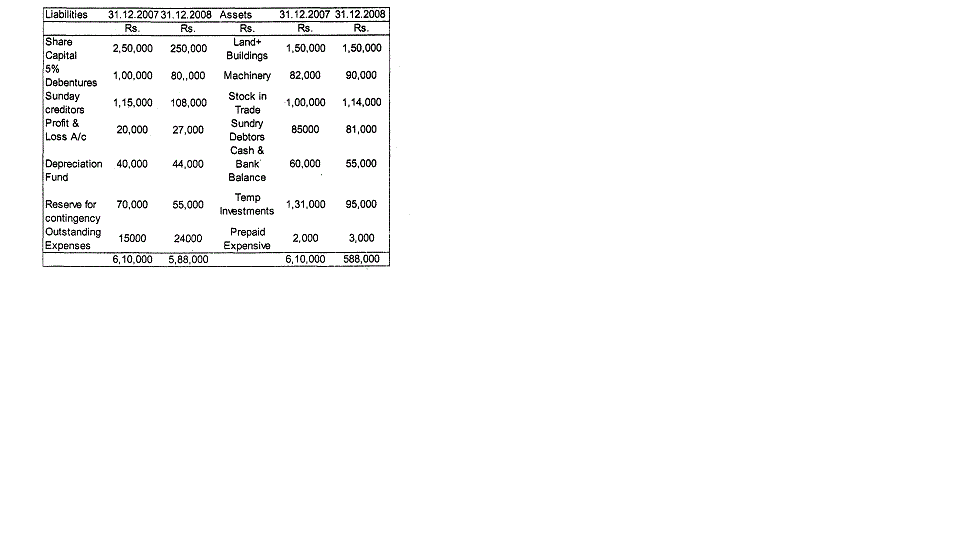MS-4 - june-2009
MS-4 : ACCOUNTING AND FINANCE FOR MANAGERS
1. 'Management Accounting is an extension of financial Accounting'. Explain how is Management Accounting..an effective tool of financial control ? Discuss.
2. Explain the cost concept and the concept of conservation. Why are assets shown at cost even when this market prices far exceeds the cost ? Give reason.
3.Why are Reserves created at the time of preparing the final accounts ? Distinguish
between General Reserve and Specific Reserve and give their examples.
4.Distinguish between capital expenditure and revenue expenditure. what will be the
effect on net profit, if the accountant treats a capital expenditure as revenue expenditure. Discuss.
5. Distinguish between :
(a) Gross Working Capital and Net Working Capital.
b) Current Ratio and Quick Ratio.
c) Direct Labour Rate Variance and Direct. Labour Efficiency Variance.
d) Committed Fixed Costs and Disentionarv Fixed Costs.
6. In what way is financial leverage related to operating leverage ? Discuss with an example.
7. How would you appraise the technical feasibility and financial viabilrty of a project ? Explain.
8.What do you understand by Zero Base Budgeting ? Discuss the steps that are involved in the preparation of Zero Base Budget and describe its advantages over a traditional budget.
9. Explain fully the following statements :
a) very high current ratio is not desirable.
(b) "Cash Budget is a statement of all incomes and expenses during a given period."
(c) "Weighted average cost of capital would always be higher, if the market value weights are used."
(d) Companies with very high profits generally have a low pay out ratio.
10. Following details have been extracted from the annual budget of a manufacturing company for the year 2007 and 2008 :
Particulars Per Unit Rs. Per Annual rs
Selling Price 300
Direct Materials 64
Direct Labor 48
Production overheads:
Variable 32 4000000
Fixed 3000000
Administrative overheads-fixed
Selling and Distribution overheads:
Variable 36
Fixed 20,00,000
Currently the company is operating on a margin of safety of 25%. To improve its
profitability further, the company is considering the following options.
(a) Reduce selling price by 5%. Sales volume is expected to increase by 2A% also fixed production overheads will increase by Rs. 2lakh and fixed selling and distribution over heads by Rs 3 lakh.
b) Increase selling price by 5%. This will cause a drop in sales volume by 10%. To arrest further fall in sales, an increase of Rs 2 lakh will be required under fixed selling and distribution overheads.
c) Production can be increased by 15% by introducing an incentive scheme for labour.
This will be increase direct labour cost by 25%. An additional expenditure of Rs 3lakh would be required under fixed selling and distribution overhead to market the
increased production.
Required :
(a) Current level of production/sales and profit earned.
b) Assuming that (i), (ii) and (iii) above are mutually exclusive and other views remain unchanged, evaluate each of these options.
(c) If the company is able to reduce raw material cost by Rs 5 per unit by making
bulk purchases and reduce the fixed overhead costs by 2 lakh by suitable economy measures, at what selling price per unit should it sell its current production to earn a 10% increase in current profit ?
- The Balance Sheets of ABC Manufacturing Company Ltd. as on December 31, 2007 and 2008 are as follows :

The following additional information is also available.
(a)A new machinery was purchased for Rs. 30,000 and old machinery costing Rs. 15,000 was sold for Rs. 5,000. Accumulated depreciation was Rs. 8,000.
(b) Rs 20,000 5% debentures were reduced by purchase from open market @ Rs 96.
c) Rs 36,000 investments were sold at book value.
d) 12% dividend was paid in cash
e) Rs.15,000 was debited to Contingency Reserve to settlement of previous tax liability.
You are required to prepare :
(a) a statement of changes in Working Capital, and
(b) a statement showing the sources and application of funds.